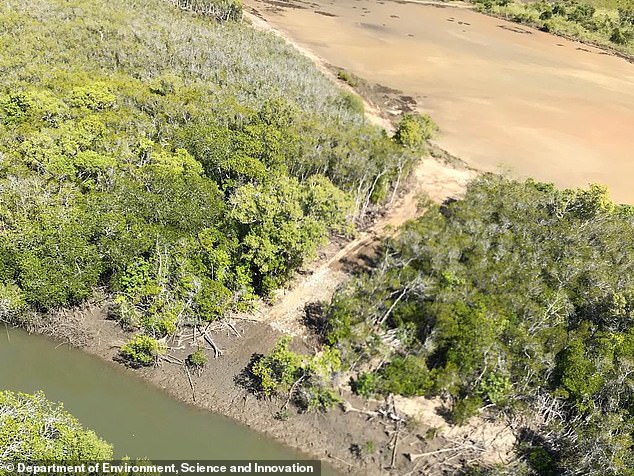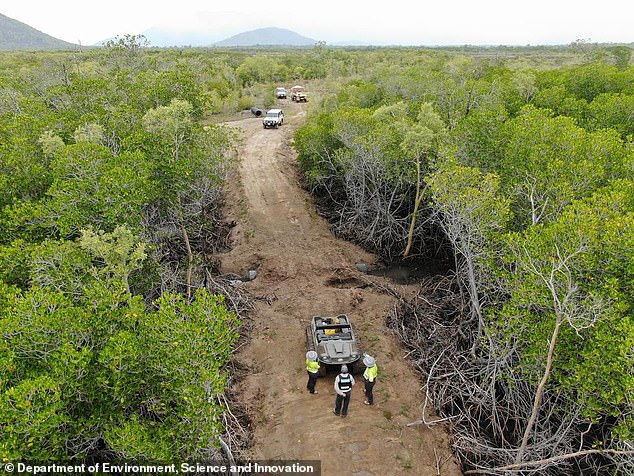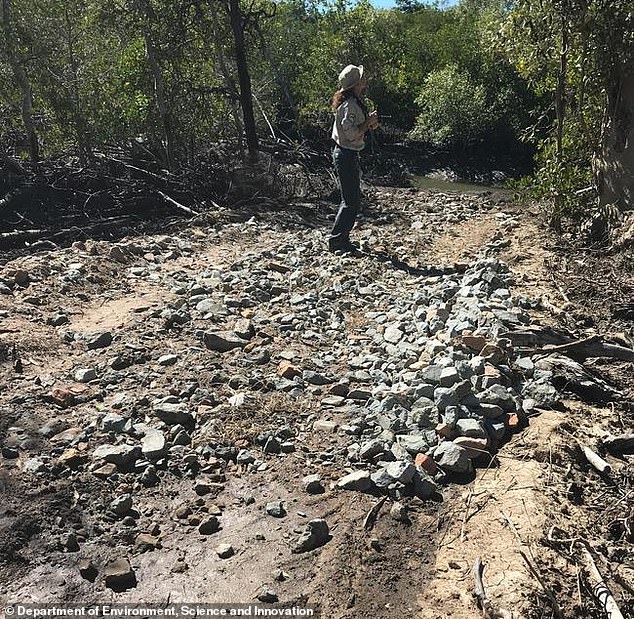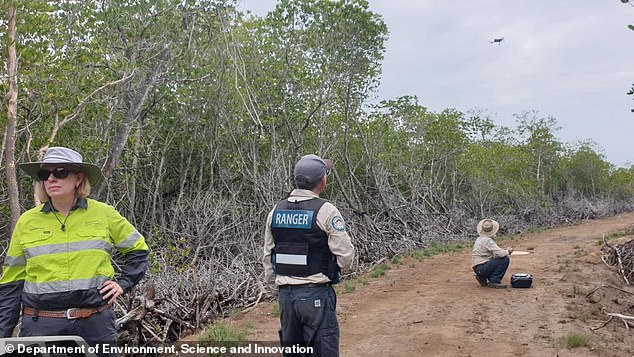<!–
<!–
<!– <!–
<!–
<!–
<!–
A man has been awarded almost $145,000 in fines and legal costs in a landmark decision for his “brazen” act of clearing protected wetlands and destroying thousands of mangroves.
The man from Townsville in northern Queensland cleared more than 19,000 square metres, or approximately three NRL plots, of internationally recognized wetlands in Cape Cleveland, which is part of the Bowling Green Bay National Park.
He pleaded guilty to 11 unlawful acts of environmental destruction in the Townsville Magistrates Court at a previous hearing.
On Wednesday, the perpetrator was fined $20,000, ordered to pay $5,000 in legal fees and a whopping $120,000 toward restoration of the destroyed area.

A man has had to pay $145,000 in fines and legal costs for illegally logging protected wetlands in northern Queensland


The man destroyed thousands of mangroves to build a road from his property to a nearby stream
Despite Queensland warning him he couldn’t touch the protected area Parks and Wildlife Service, the man went ahead with his plans and carved a 2km road linking his property to Alligator Creek between October 2019 and June 2020.
To build the road, he destroyed thousands of mangroves and removed local land from the national park without approval.
He also built a boat ramp and several causeways along Alligator Creek and nearby Crocodile Creek using dirt, waste materials such as rocks, concrete, bricks, and used pipes that obstructed tidal flow.
The illegal activity was reported to the Queensland Parks and Wildlife Service in April 2020, leading to a joint investigation with the Queensland Boating and Fisheries Patrol.
Senior conservation officer Craig Dunk said this week’s court decision sent a strong message about protecting the environment.
This is the first use of the Environmental Protection Act 1994 by DESI to obtain a public benefit order for restoration costs due to damage to a protected area.
“The damage that has been intentionally caused to these wetlands will take years to fully recover and could create effects on wider ecosystems, including the Great Barrier Reef. It is heartbreaking,” Mr Dunk said. news.com.au.


Waste materials such as broken bricks and concrete were used in the illegal road works.
‘Today’s decision reaffirms our continued commitment to zero tolerance of environmental harm within our nationally and internationally recognized protected areas.
;Those who have the privilege of living next to our beautiful protected areas have the responsibility to carry out the necessary checks before carrying out any cleanup that may affect the park.
“We hope this court outcome sends a strong message that we will not hesitate to hold people accountable for damaging our precious environment.”
Fisheries Queensland chief executive Dallas D’Silva said mAnglers are essential for fish habitats and the environment in general.
He hopes his grief serves as a warning to others.
“This sanction with fines of $20,000 and a restoration order of $120,000 makes the consequences clear: do not damage the mangroves because it can cost you dearly,” said Mr. D’Silva.


Illegal activity in the National Park was reported to the Queensland Parks and Wildlife Service in April 2020.

